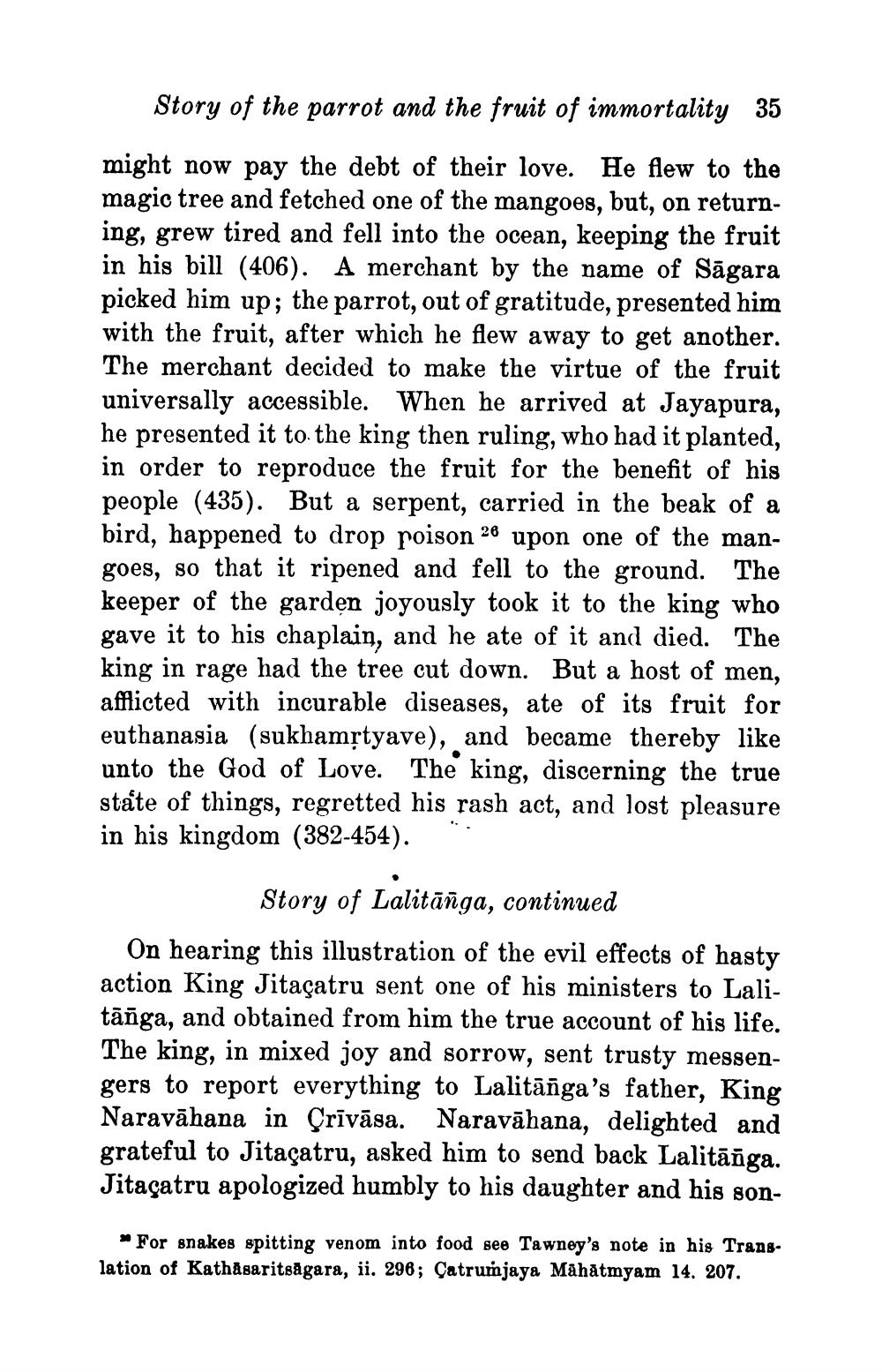________________
Story of the parrot and the fruit of immortality 35
might now pay the debt of their love. He flew to the magic tree and fetched one of the mangoes, but, on returning, grew tired and fell into the ocean, keeping the fruit in his bill (406). A merchant by the name of Sāgara picked him up; the parrot, out of gratitude, presented him with the fruit, after which he flew away to get another. The merchant decided to make the virtue of the fruit universally accessible. When he arrived at Jayapura, he presented it to the king then ruling, who had it planted, in order to reproduce the fruit for the benefit of his people (435). But a serpent, carried in the beak of a bird, happened to drop poison 20 upon one of the mangoes, so that it ripened and fell to the ground. The keeper of the garden joyously took it to the king who gave it to his chaplain, and he ate of it and died. The king in rage had the tree cut down. But a host of men, afflicted with incurable diseases, ate of its fruit for euthanasia (sukhamstyave), and became thereby like unto the God of Love. The king, discerning the true state of things, regretted his rash act, and lost pleasure in his kingdom (382-454).
Story of Lalitāñga, continued On hearing this illustration of the evil effects of hasty action King Jitaçatru sent one of his ministers to Lalitāñga, and obtained from him the true account of his life. The king, in mixed joy and sorrow, sent trusty messengers to report everything to Lalitāñga's father, King Naravāhana in Crīvāsa. Naravāhana, delighted and grateful to Jitaçatru, asked him to send back Lalitāñga. Jitaçatru apologized humbly to his daughter and his son
> For snakes spitting venom into food see Tawney's note in his Translation of Kathåsaritsågara, ii. 296; Catrumjaya Mahatmyam 14. 207.




